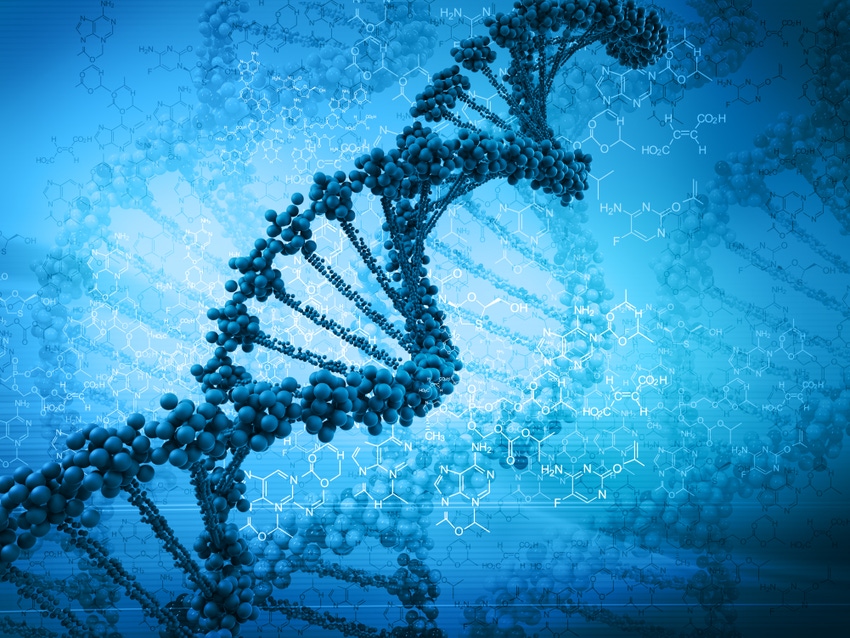Illumina collaboration to accelerate development of new molecular breeding tools for cattle; Monsanto agreement concerns mining large data sets for plant breeding projects.

Illumina Inc. and NRGene, a globally recognized leader in genome assembly and analysis, announced Jan. 12 a collaboration to develop new molecular breeding tools for cattle.
As a first step, the companies also announced the completion of a high-quality genome assembly of the Nellore cattle in conjunction with researchers at the Universidade Estadual Paulista in Brazil.
The companies will work together to sequence and assemble additional individual cattle genomes from different breeds to accelerate knowledge of genetic variation across all cattle breeds. This information will aid in the development of new commercial tools that can be used for genomic selection and other genomic technologies in cattle, helping to accelerate breeding programs to enhance global food (meat and milk) production efforts.
“We look forward to this next phase of our strategic collaboration with NRGene to accelerate global cattle breeding efforts through additional sequencing studies and, ultimately, the commercialization of improved genomic selection tools,” said Rob Brainin, vice president and general manager, applied genomics for Illumina. “Our greatly expanding understanding of the bovine genome will support numerous breeding programs worldwide, helping to improve production and consumer traits as well as to address global demand for safe, nutritious, healthy protein products.”
Nellore (bos indicus) is the most dominant zebu beef cattle breed for food production in the tropical regions of the world. The sequencing and assembly of its genome was completed using Illumina's next-generation sequence data and NRGene’s cloud-based DeNovoMAGIC 3.0 assembly software package. As more cattle genomes are generated, NRGene’s PanMAGIC will be used to compare the complete genome sequences of multiple individual samples to capture the broad genomic diversity. This information will be used to design more efficient genotyping tools to support cattle breeding programs.
“Using technology from Illumina and NRGene has enabled us to develop an accurate assembly of a heterozygote genome for Nellore cattle in just two months,” said Jose Fernando Garcia, a professor at the Universidade Estadual Paulista. “We believe this reference genome will help Brazilian cattle breeders to dramatically improve local beef production and, more importantly, will provide insights about Nellore reproduction (fertility) and meat quality that can be used to add value to worldwide production.”
The combination of NRGene’s and Illumina’s technologies has already been used for other agricultural projects to decode some of the most complex genomes, including the hexaploid bread wheat, tetraploid heterozygote mango, octoploid heterozygote strawberry, along with dozens of new maize, soybean, cotton and canola genomes.
“This bovine assembly further reveals the diversity in cattle via our expanding capabilities to deliver new tools for genotyping and breeding,” NRGene chief executive officer Gil Ronen said. “The ultimate value in our technology is that it can be deployed to analyze and accelerate breeding across any agricultural species: crops, farm animals and aquaculture.”
Separately, Monsanto Co. and NRGene announced Jan. 12 that the companies have reached a non-exclusive, multiyear global licensing agreement on NRGene’s genome analysis technology to enhance Monsanto’s ability to predict, compare and select the best genetic makeup from its vast data sets of genetic, genomic and trait information.
Both companies noted their dedication to developing technologies that support farmers as they work to grow better harvests, protect their crops and deliver more to society in the face of mounting environmental challenges. Monsanto’s research and development pipeline is focused on providing solutions to those challenges through plant breeding, plant biotechnology, crop protection, agricultural biologicals and data science.
About the Author(s)
You May Also Like


.png?width=300&auto=webp&quality=80&disable=upscale)
